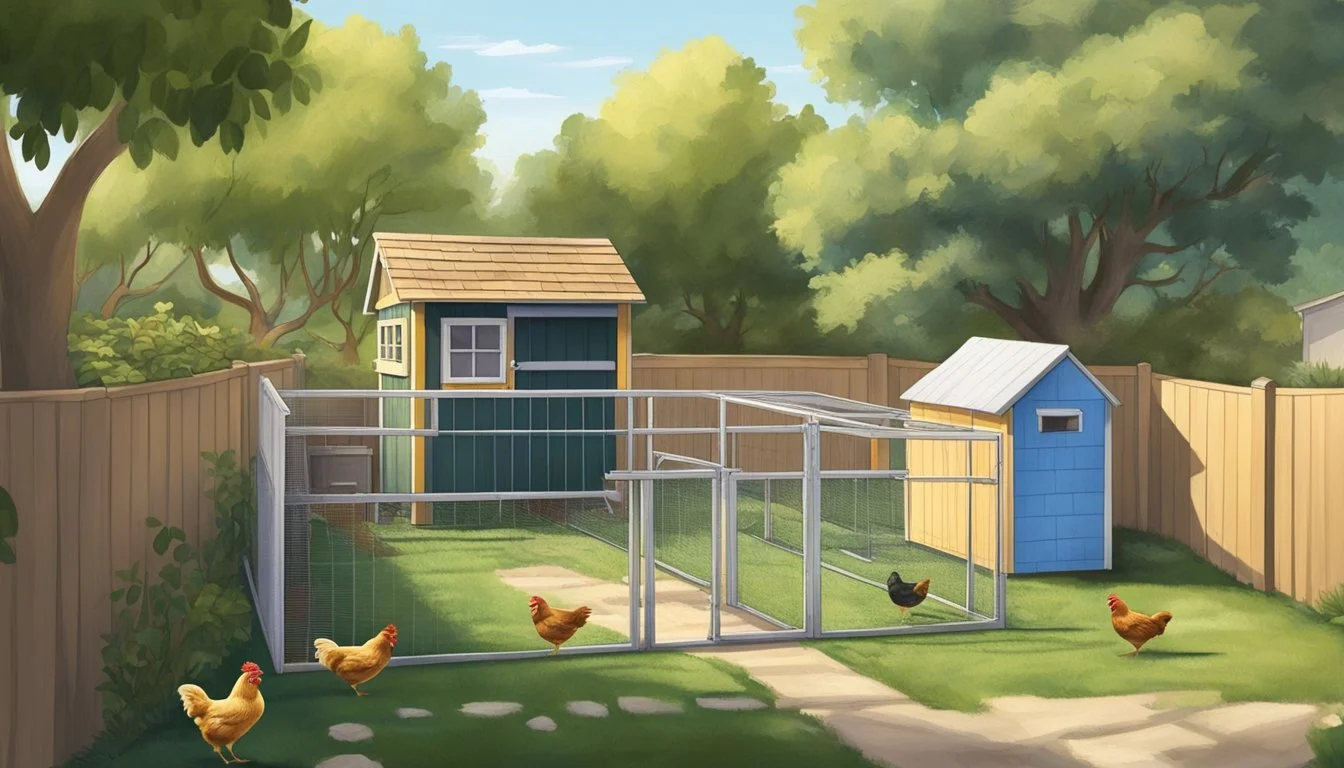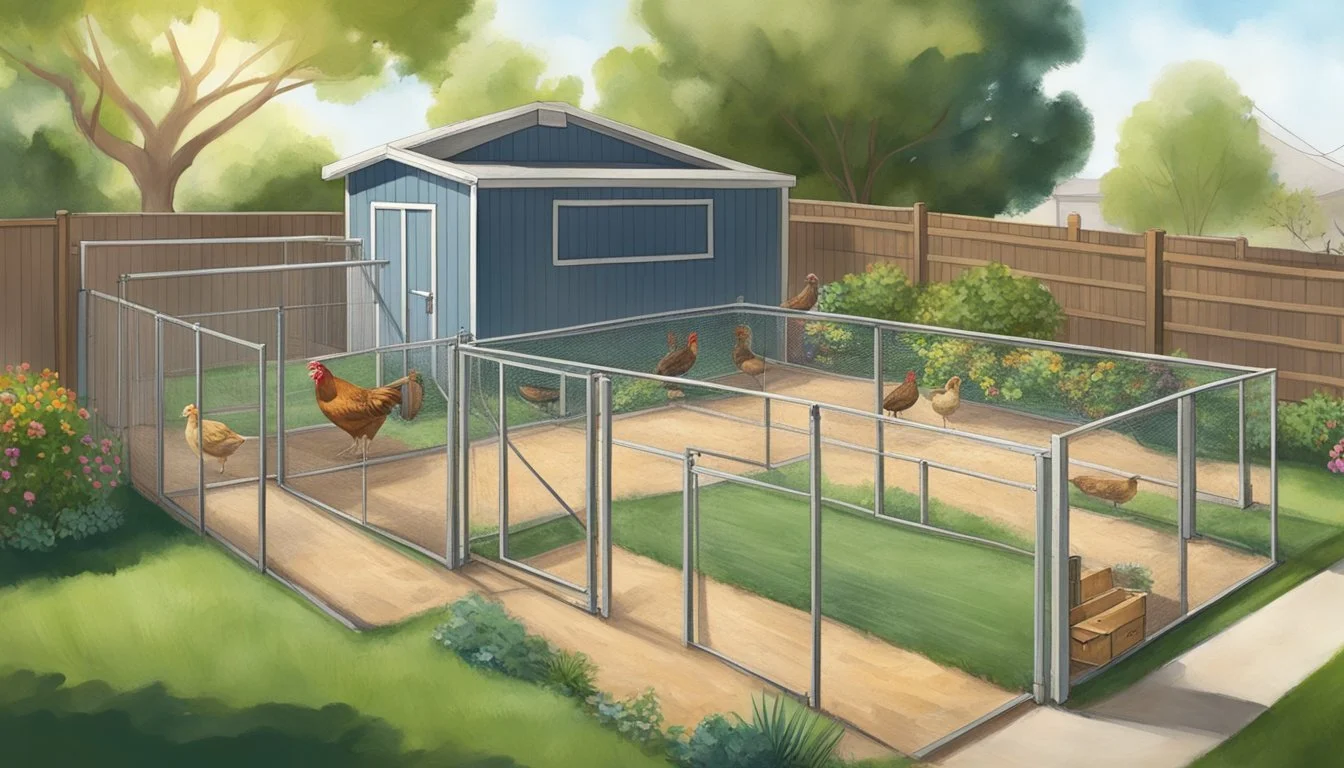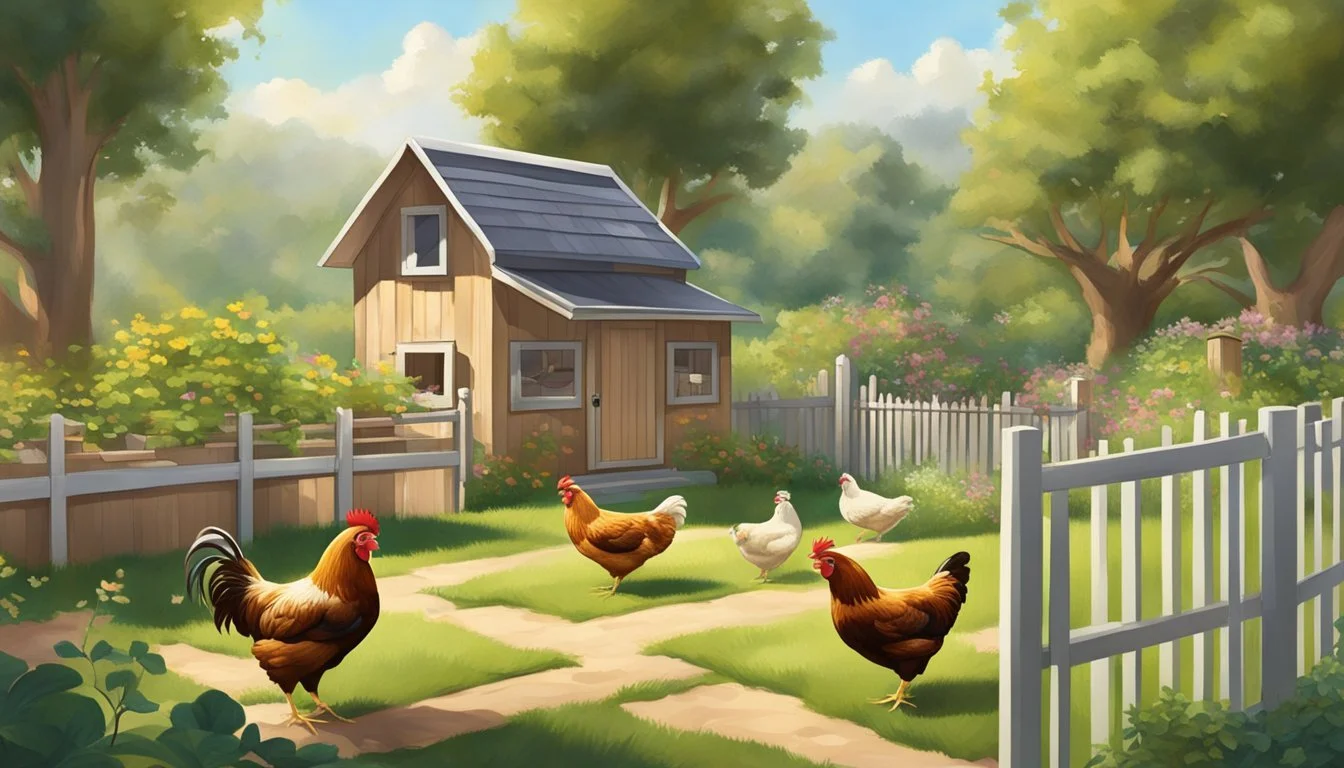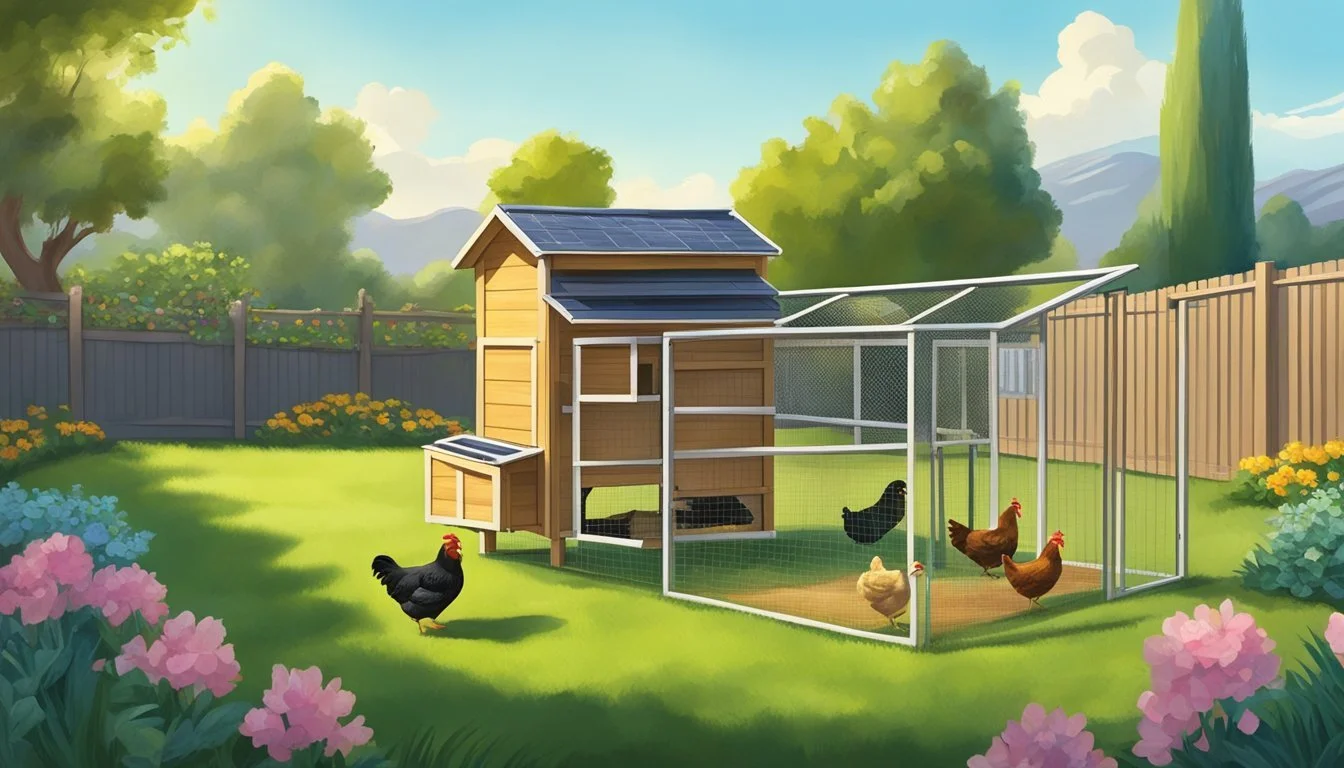Keeping Backyard Chickens in Burbank, CA
Essential Guidelines for Urban Poultry Farmers
Keeping backyard chickens has become an increasingly popular practice among residents who are seeking a more sustainable lifestyle with a touch of rural charm. In Burbank, California, this trend is supported by city ordinances that allow for the raising of poultry under certain conditions, making it accessible for locals to enjoy fresh eggs and the pleasures of raising their own flock.
The Burbank municipal code stipulates that residents may keep chickens without the need for a special permit as long as the total number of chickens and other animals does not exceed 25. Moreover, it is important for potential poultry keepers in Burbank to note that while chickens are permissible, owning a crowing rooster is not, ensuring neighborhood peace and tranquility.
Before venturing into poultry keeping, it is essential for Burbank residents to understand local regulations that govern coop placement, the size of the structure, and the required distances from dwelling spaces. This knowledge ensures that the hobby is not only enjoyable but also harmonious with the community's standards and the welfare of the birds.
Understanding Local Ordinances and Regulations
In Burbank, CA, the local government has set specific ordinances regarding the keeping of backyard chickens. These rules are in place to balance the interests of urban poultry enthusiasts with public health and neighborhood harmony.
Overview of Burbank Chicken Ordinance
The City of Burbank allows residents to keep chickens without a permit, provided the flock does not exceed 25 birds and does not include any roosters. This ordinance aims to minimize noise and disturbances within residential areas.
Permit Requirements and Process
Permit Required: No permit is required for keeping up to 25 chickens. Annual Permit Fee: Not applicable as no permit is required.
Regulations on Number, Breed, and Age of Chickens
Number of Chickens Allowed: Up to 25.
Breeds and Ages: There are no specific breed or age restrictions mentioned in the ordinance.
Proximity to Neighboring Residences
Chickens must be kept in a suitable coop and enclosed area. Although specific distances are not mentioned, the coop must not disrupt neighbors or cause a nuisance.
Noise and Nuisance Management
While keeping chickens, residents must ensure that their chickens do not create excessive noise, odors, or attract pests. Roosters are not permitted due to their propensity for noise.
Penalties and Enforcement
Noncompliance with the Burbank chicken laws can result in penalties. Enforcement is typically conducted by Animal Control or local law enforcement agencies.
Comparison with Nearby Towns
Neighboring towns such as Los Angeles and Long Beach may have different regulations, emphasizing the importance of understanding local ordinances.
Potential Changes and Public Input
Residents can attend public hearings to stay engaged with any potential changes to the chicken ordinances. Local government encourages public input to address community concerns.
Resources for Staying Informed
Residents should search relevant forums, threads, and the official Burbank city website. Notification services to one's inbox and updates via iOS or other apps may be available. It's also advisable to upgrade one's browser to ensure compatibility when seeking information online.
Setting Up Your Backyard for Chickens
Setting up your backyard for chickens requires careful planning to provide a secure and healthy environment. Design considerations, cleanliness, space requirements, and protection measures are essential for your flock's well-being.
Designing the Chicken Coop
The chicken coop should be sturdy and weather-resistant, with proper ventilation to ensure a fresh air supply. The coop's design should accommodate perches for roosting and protect against predators, with fencing buried underground to deter digging animals. Coop dimensions depend on the flock size, allowing 2-3 square feet per bird indoors.
Ensuring Safe and Clean Environments
A clean environment is paramount to prevent disease. Regularly remove manure and sanitize waterers and feeders. Implement a manure management system, which may include composting, to keep the area sanitary. Ideally, design the coop with easy access for cleaning.
Nesting Box and Roaming Area Requirements
Each hen requires a nesting box measuring roughly 12"x12"x12", filled with clean nesting material like straw or shavings. For the roaming area, provide at least 10 square feet per chicken in the outdoor enclosure. Ensure the space is fenced to keep chickens in and predators out.
Protection Against Predators and Pests
Predator-proof your backyard with sturdy fencing and a wire mesh overhead to guard against aerial threats. Regularly inspect the coop for holes or weaknesses to prevent pest intrusion. Lock the chickens in the coop at dusk and consider motion-sensor lights for additional nighttime security.
Adhering to Space and Fencing Setbacks
Local ordinances may dictate setbacks for coop placement. In Burbank, fencing must be in place to confine chickens to your property. Maintain a respectful distance from neighboring properties to minimize disturbances and adhere to any specific local regulations on property line setbacks.
Health, Safety, and Welfare of Chickens
https://youtu.be/gP_GdKTbRawMaintaining the health, safety, and welfare of backyard chickens in Burbank, California, requires a vigilant approach to disease prevention, waste management, nutrition, and handling practices. By implementing proper measures, owners can ensure their flocks thrive in a safe and healthy environment.
Detecting and Preventing Diseases
Backyard poultry, including chickens and ducks, are susceptible to various diseases such as avian influenza, salmonella, and campylobacter. Owners should be vigilant in recognizing symptoms of illness, which can include changes in behavior, drop in egg production, and respiratory issues. Scheduling regular veterinary check-ups and vaccinations can greatly reduce the risk of disease spread. Keeping coops clean and practicing biosecurity measures are crucial for disease prevention.
Management of Chicken Waste
Effective handling of chicken waste is essential to prevent health hazards. Chicken poop should be regularly removed from coops and runs. Composting is an effective method for managing manure, transforming it into a nutrient-rich fertilizer. However, this process must be done correctly to kill harmful pathogens. Proper composting involves maintaining the right balance of carbon and nitrogen materials and ensuring adequate temperature and moisture levels.
Diet and Nutrition for Optimal Health
A balanced diet is vital for the health and well-being of backyard chickens. Their diet should consist of a commercial poultry feed supplemented with grains, vegetables, and the occasional protein treat. Clean, fresh water should be available at all times. Owners should avoid feeding chickens foods that are high in salt, fat, or sugar, which can lead to obesity and other health issues.
Best Practices for Handling Chickens
Regular, gentle handling helps to keep chickens tame and allows owners to check for signs of illness or injury. When handling poultry, it’s important to wash hands thoroughly before and after to reduce the risk of salmonella. Keep chickens away from indoor areas, avoid kissing or snuggling them, and discourage children from putting chickens near their face to maintain good hygiene and reduce the risk of disease transmission.
By adhering to these guidelines, owners will be able to ensure the welfare of their backyard flocks while safeguarding their own health and that of their community.
Benefits and Challenges of Backyard Chickens
Advantages of Raising Backyard Chickens
Raising backyard chickens in Burbank offers tangible benefits, such as a steady supply of fresh eggs that are often more nutritious than store-bought ones. Chickens contribute to the environment by reducing food waste, as they can eat many kitchen scraps. Additionally, they act as natural pest controllers, eagerly consuming insects in the garden.
Fresh Eggs: Home-raised chickens provide eggs that are fresher and can be more nutritious due to the control over their diet.
Environmental Impact: Chickens recycle food scraps, reducing waste.
Pest Control: Backyard poultry consume garden pests, which can reduce the need for chemical pesticides.
Common Concerns and How to Mitigate Them
However, keeping chickens comes with its own set of challenges. Noise can be a common complaint, hence local ordinances in Burbank assert that no crowing roosters are allowed. The close proximity of chickens to residential areas can lead to concerns about smell and potential for disease. It's important for owners to regularly clean coops and practice proper waste management to mitigate these issues.
Noise Restrictions: Roosters are not permitted due to potential noise.
Odor and Health: Regular coop cleaning and waste management are essential.
Engaging with the Community on Backyard Chickens
Chicken owners should engage with their neighbors and local community to ensure harmony and address any concerns such as noise or odors. Being transparent about chicken-keeping practices and the measures taken to respect local regulations can mitigate opposition. They might even share fresh eggs as a gesture of goodwill.
Community Relations: Open communication with neighbors can alleviate concerns.
Sharing Benefits: Offering fresh eggs can foster positive relationships.
Balancing Urban Farming and Residential Life
In residential areas, the balance between backyard farming and residential life can be delicate. Local laws in Burbank require that chickens be kept a specific distance from dwellings. These restrictions are in place to ensure that the backyard poultry do not interfere with the quality of life in residential areas.
Livestock vs. Pets: Chickens are considered livestock, and their housing must adhere to specific regulations.
Local Regulations: Ensuring compliance with distance requirements for coops promotes a balance between urban farming interests and the needs of the residential community.
Additional Considerations
When keeping backyard chickens in Burbank, CA, it's essential to consider various aspects that ensure the well-being of your chickens and the harmony of your local environment. This section provides focused insights on cohabitation with other animals, chick care, understanding poultry behavior, engaging with your community, seasonal care, and their impact on local food systems.
Coexisting with Other Pets or Livestock
Backyard chickens can live alongside other pets and livestock, given proper introductions and space. It is crucial to observe interactions carefully, particularly with pets like dogs and cats, to prevent any predatory behavior. Rabbits can coexist with chickens; however, separate living quarters are recommended to accommodate their different needs.
Preparing for Baby Chicks and Hatchery Selection
Selecting a reputable hatchery is vital when starting with baby chicks. One should look for establishments with solid health protocols to ensure they receive healthy birds. Early preparation of brooding areas will aid in the seamless introduction of chicks to their new environment.
Understanding the Role of Hens and Roosters
For a peaceful flock in a residential area, it is recommended to keep hens only. Roosters are known for crowing, which can lead to noise complaints from neighbors. Burbank regulations do not permit crowing roosters due to the disturbance they may cause.
Educating Neighbors and Building Support
Building a community of support is beneficial. Educating neighbors about the benefits of backyard poultry can alleviate concerns and opposition. Sharing fresh eggs and information about how chickens can contribute to natural pest control often helps in gaining neighborly support.
Navigating Seasonal Changes and Maintenance
Chickens require consistent maintenance, including coop cleaning and protection from predators and extreme weather. Planning for seasonal changes is necessary to ensure the health and productivity of the flock. Adequate shelter and access to water during hot summers and insulation from cold winters are important considerations.
Contributing to Local Food Sustainability
By keeping backyard chickens, residents contribute to local food sustainability. Chickens provide fresh eggs and serve as a step towards self-reliance. Proper management ensures a minimal environmental footprint and supports the community's interest in sustainable practices.
Conclusion
In Burbank, California, individuals looking to embrace the practice of keeping backyard chickens will find a supportive legal framework. The city allows up to 25 chickens without the need for a permit, provided there is no crowing rooster, which addresses noise concerns. Poultry enthusiasts should recognize that maintaining a flock within urban settings requires adherence to specific rules to ensure harmony with neighbors and animal well-being.
Residents must pay attention to:
Housing: Chickens need a secure coop that safeguards against predators and extreme weather.
Space: Adequate space per chicken is crucial to prevent stress and maintain health.
Hygiene: Regular cleaning of the coop and proper waste management are essential to prevent odors and pests.
Feeding: A proper diet will keep the backyard flock healthy, and chickens should not rely on scraps alone.
For those uncertain about local regulations, they should consult the specific municipal code or related community guidelines. Commitment to animal care standards and respect for surrounding residents will enable responsible ownership and can contribute to a fulfilling experience of raising backyard chickens in Burbank.







